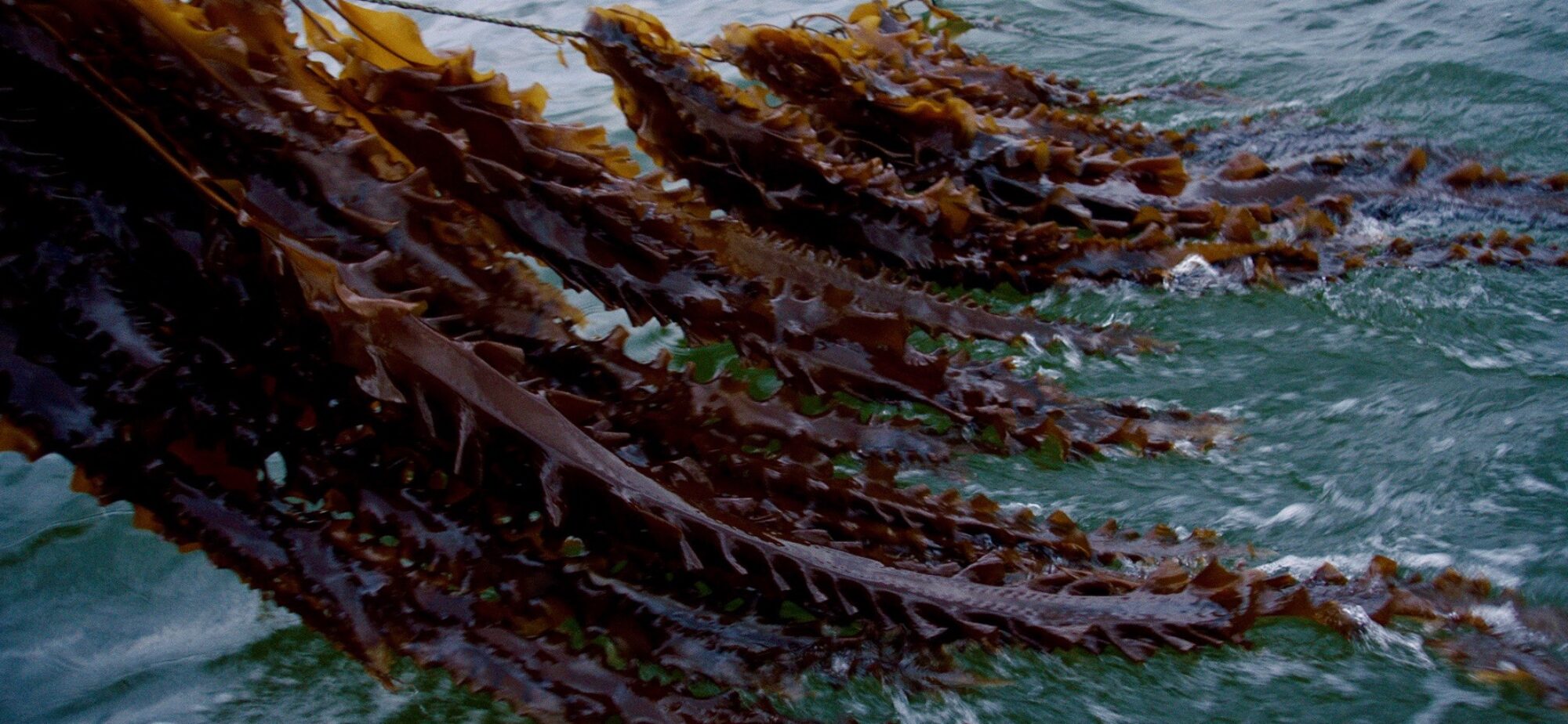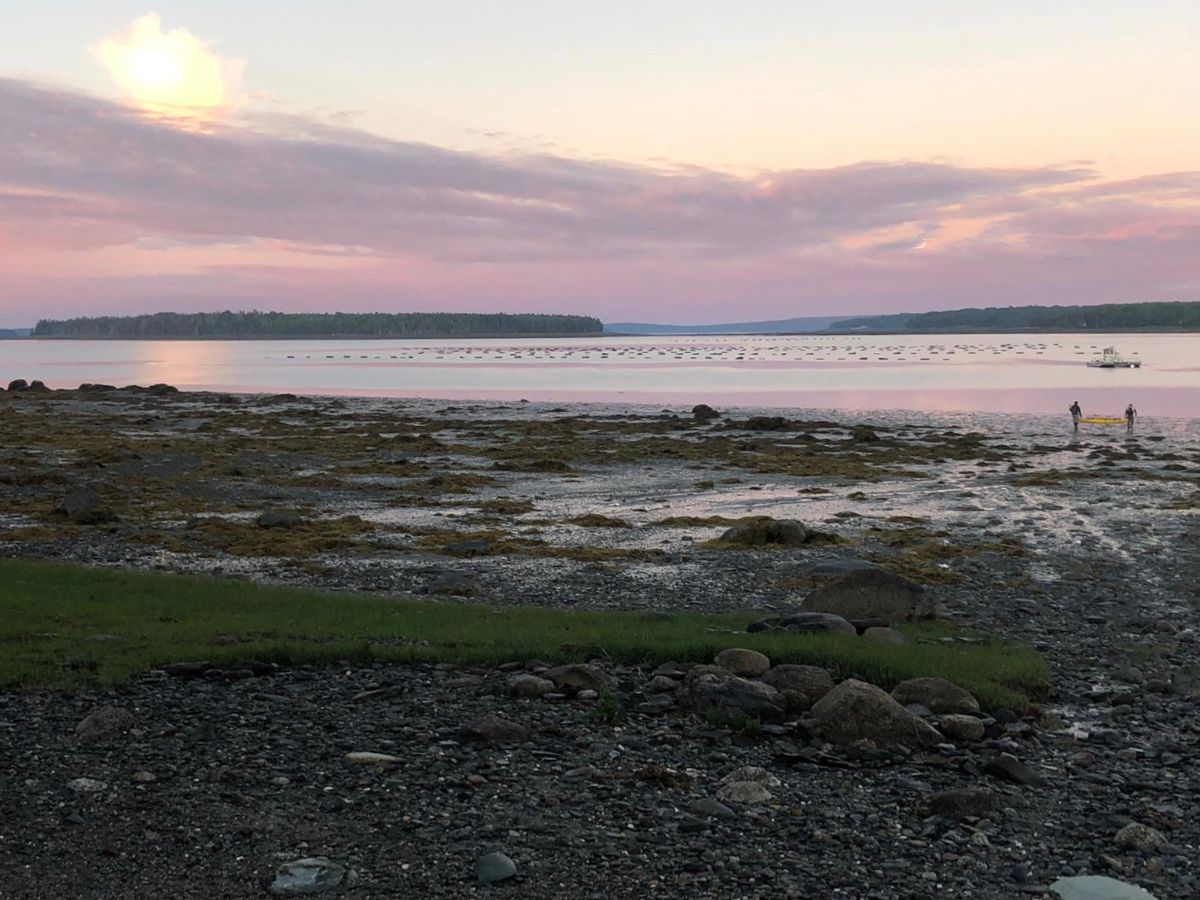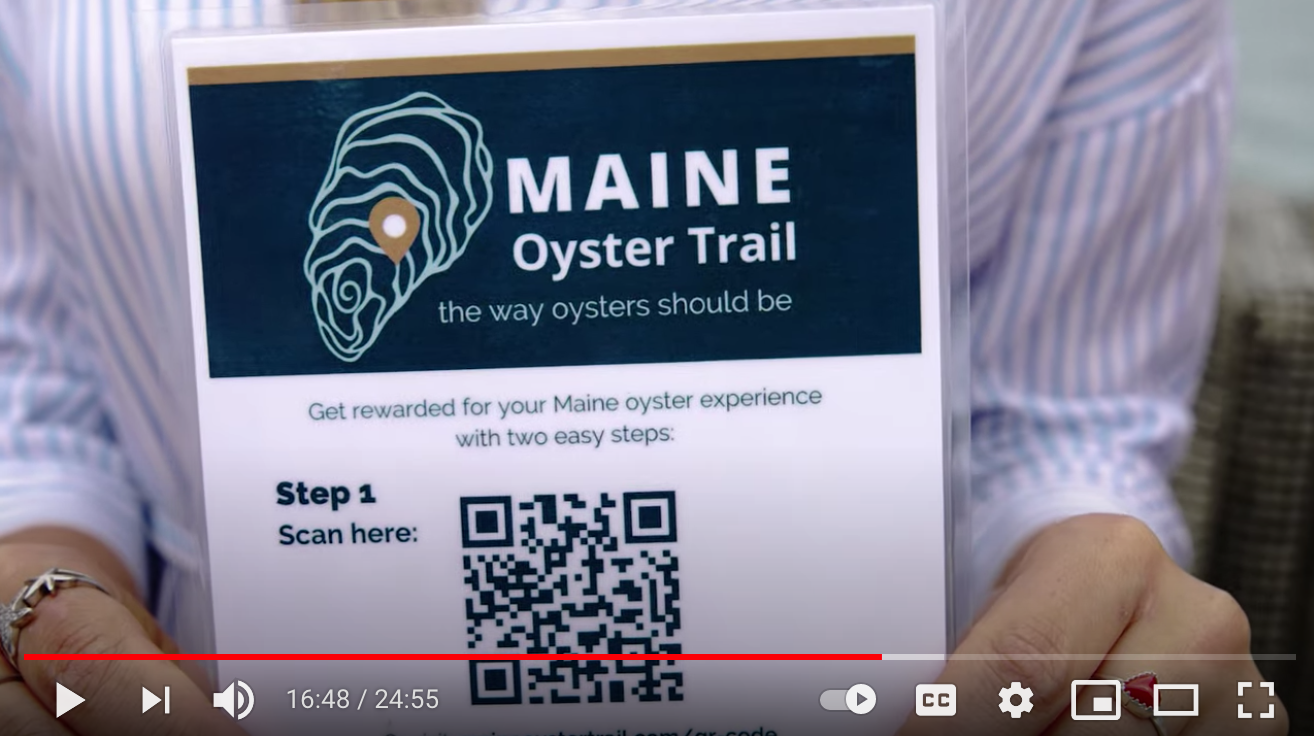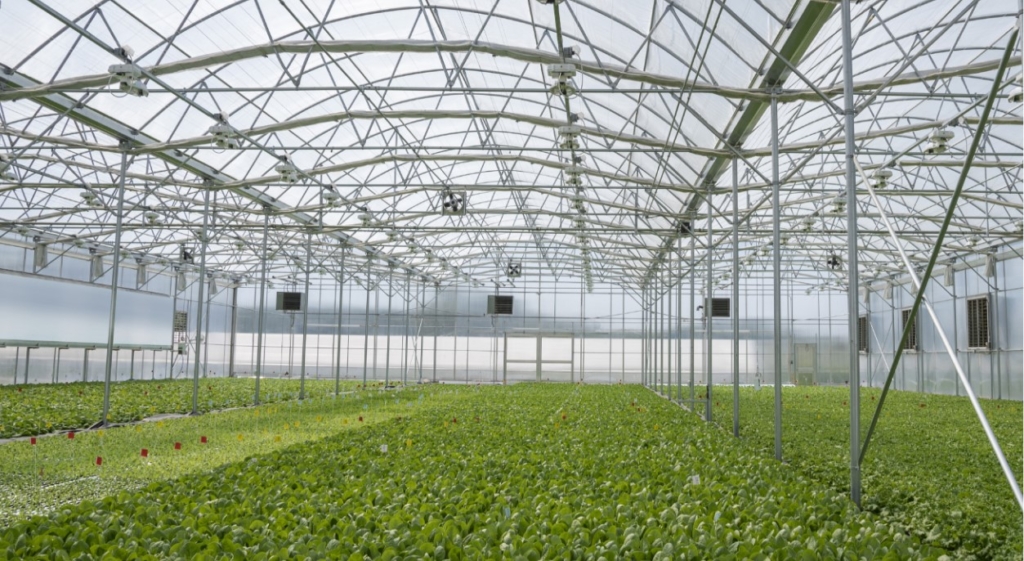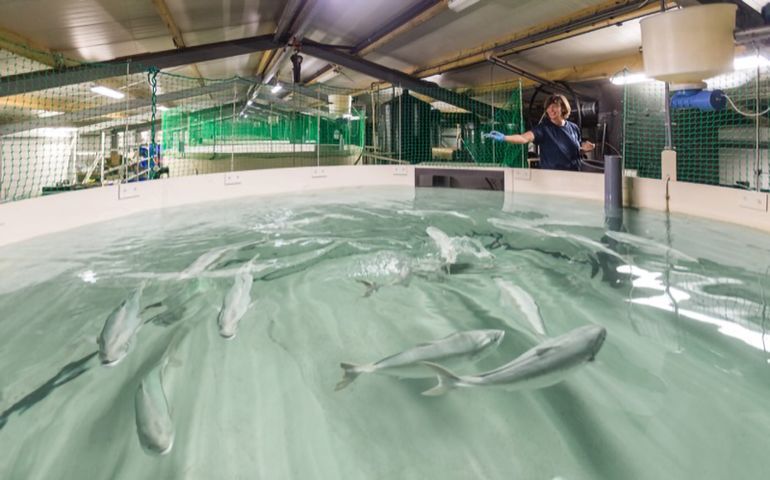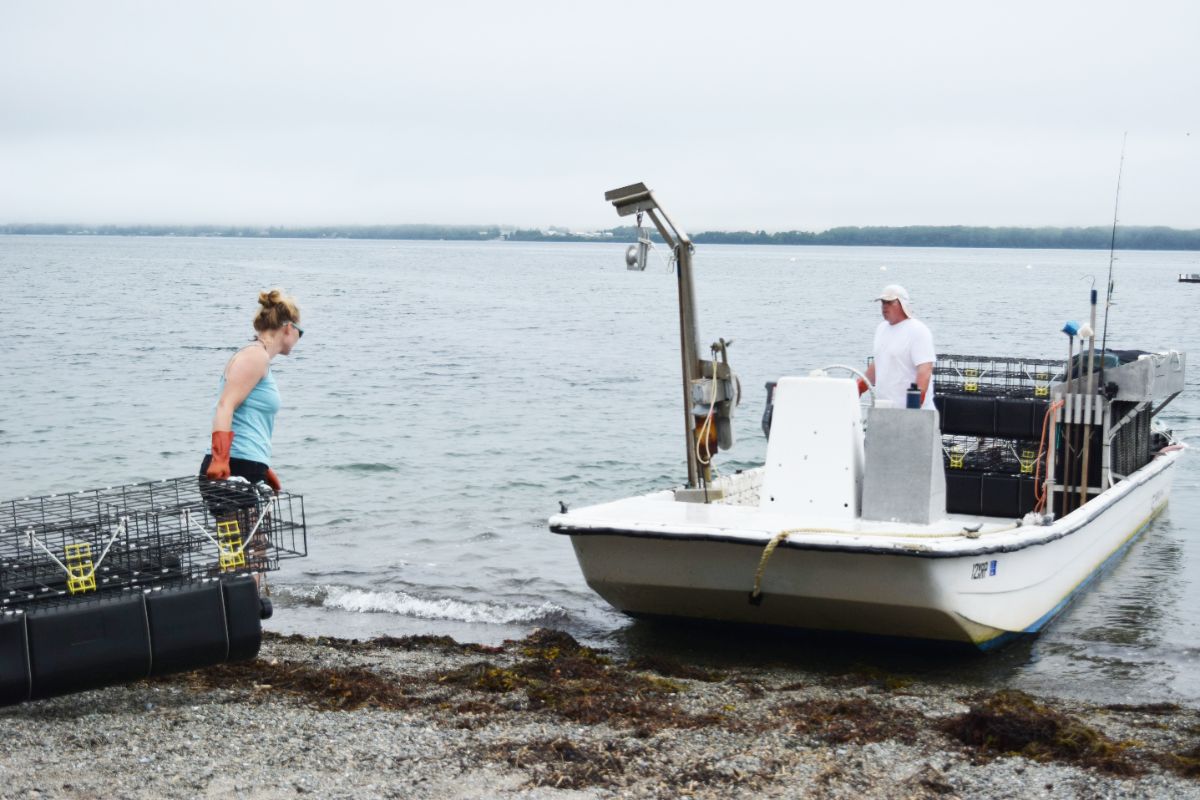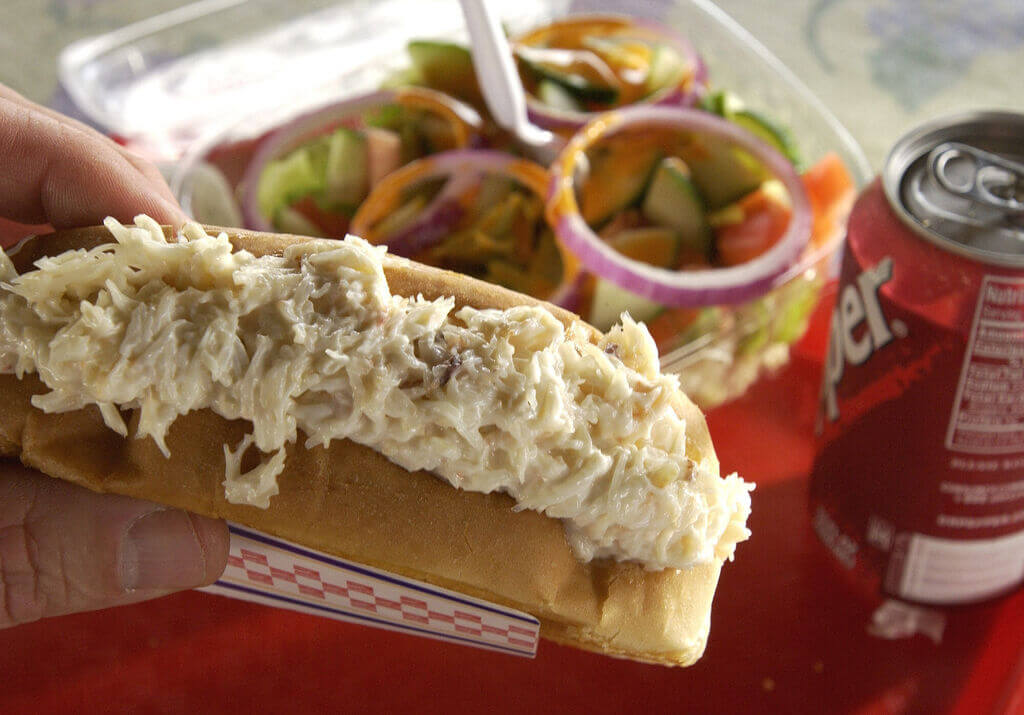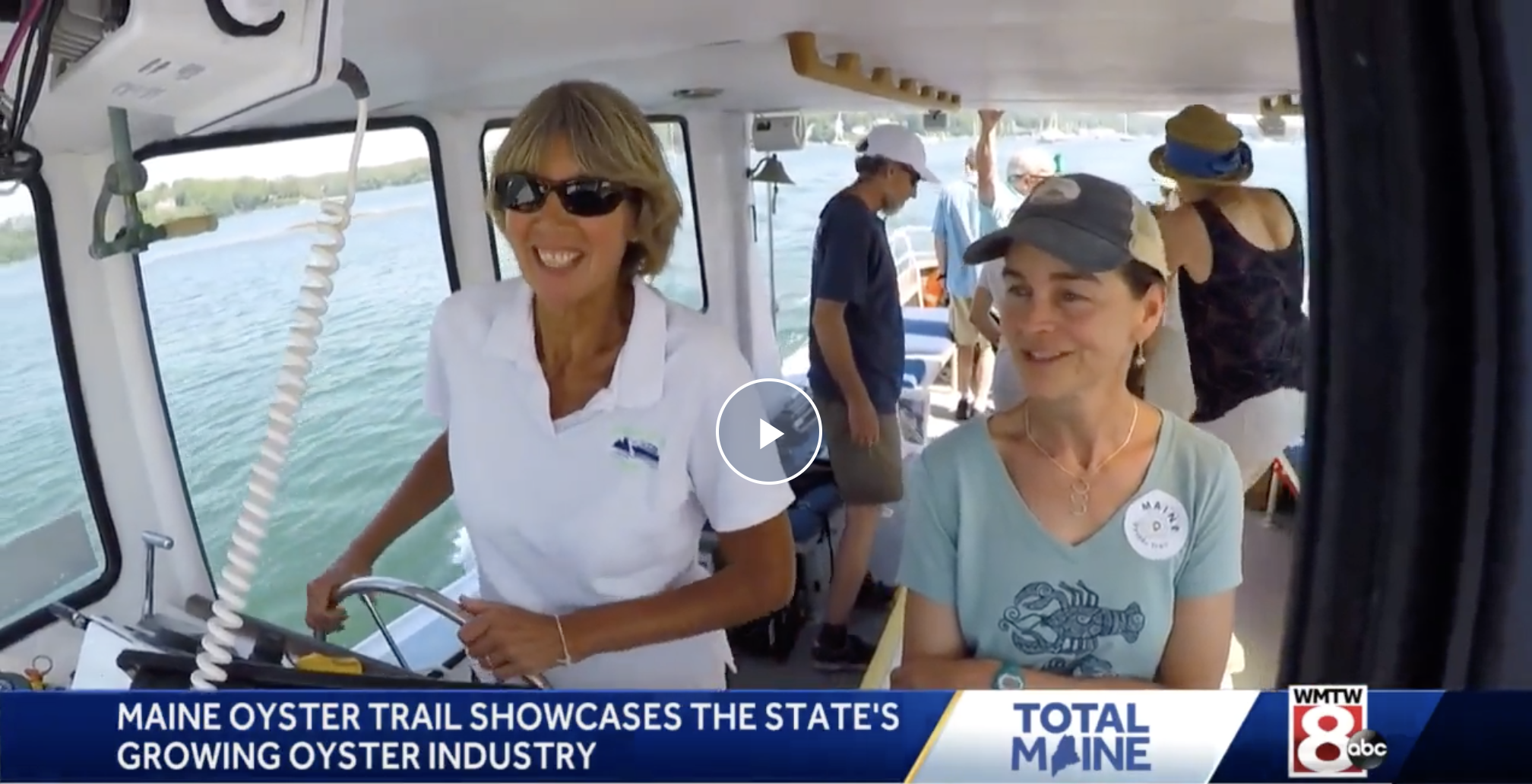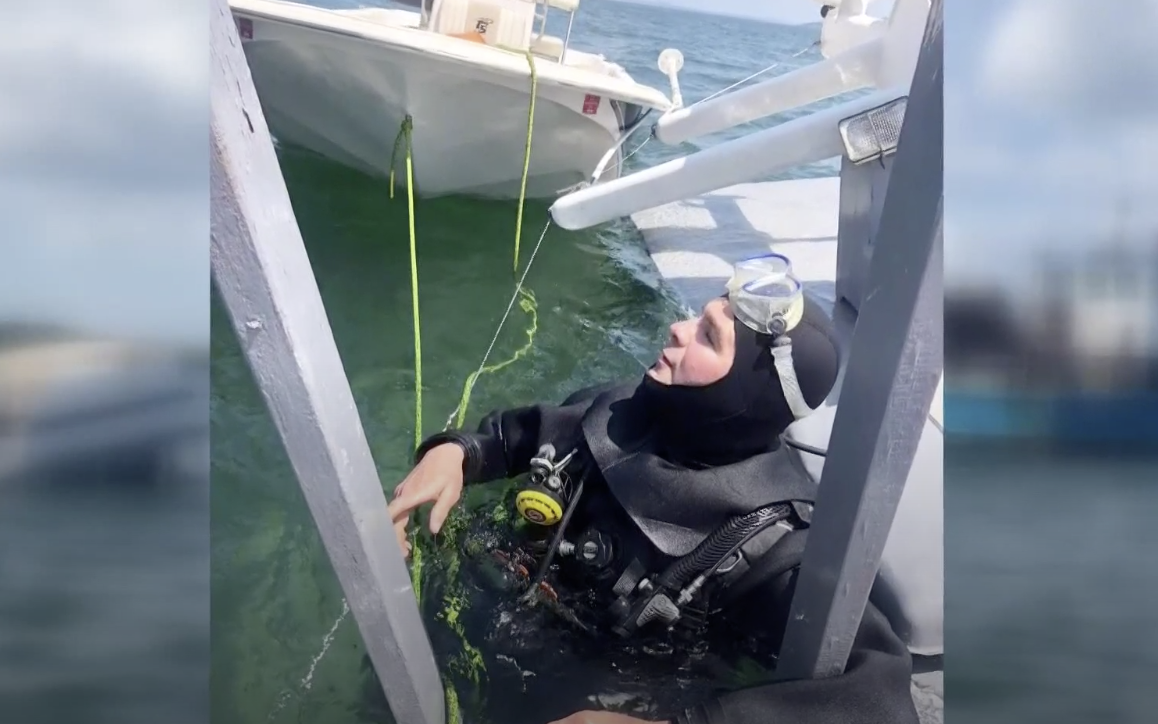 $1 MILLION FIELD STATION WILL GIVE SCIENTISTS NEW RESEARCH OPPORTUNITIES OFF THE MAINE COAST
$1 MILLION FIELD STATION WILL GIVE SCIENTISTS NEW RESEARCH OPPORTUNITIES OFF THE MAINE COAST
Bangor Daily News, 7/25/21 – “The Hurricane Island Center for Science and Leadership has broken ground on a $1 million field research station that will allow scientists — and visiting students — to conduct an array of offshore research, including research relating to climate change and fisheries. The facility will be the first of its kind in Penobscot Bay. Through it, students participating in Hurricane Island Center for Science and Leadership programming can get a firsthand look at what it’s like to try to understand and seek answers to some of the most pressing challenges facing the globe.”
 LOCAL SEA FARMERS ADD OYSTERS TO ROSTER
LOCAL SEA FARMERS ADD OYSTERS TO ROSTER
Ellsworth American, 7/7/21 – “A local leader in mussel farming and a pioneer in Maine’s young scallop industry has branched out to another species. The de Koning family, which runs the Bar Harbor-based Acadia Aqua Farms, has taken over management of Warren Pettegrow’s 50-acre oyster farm in Goose Cove. The de Konings have a mussel farm in Frenchman Bay and have recently started experimenting with growing scallops. Pettegrow, who owns the Trenton Bridge Lobster Pound, has been spread thin and asked the family if they were interested in taking over the farm, where he grows his Cadillac oysters, said Fiona de Koning, a co-owner and head of operations and sales for Acadia Aqua Farms.”
 DOCK & DINE SEASON 2, EPISODE 4, featuring the maine oyster trail & others
DOCK & DINE SEASON 2, EPISODE 4, featuring the maine oyster trail & others
Maine Life Media, 7/5/21 – “Paul’s Marina & Judy’s General Store, Seacoast Tours of Freeport, Maine Oyster Trail, Mere Point Oysters.” Check out the episode on YouTube. The oyster segment starts at minute 15:00.
 LISBON AQUAPONICS FARM EXPANSION COULD PUMP OUT 20 MILLION HEADS OF LETTUCE PER YEAR
LISBON AQUAPONICS FARM EXPANSION COULD PUMP OUT 20 MILLION HEADS OF LETTUCE PER YEAR
Times Record, 6/30/21 – “Trevor Kenkel bought his first aquaponic farming setup — a tank, five goldish and some lettuce seedlings — around age 13 in his home state of Montana. At that time, he said, salad was far from his favorite meal. ‘Growing up in Montana you’re on like the end of the distribution chain,’ Kenkel said. ‘So, whatever we were getting for greens were not good.’ At 19, right before starting at Bowdoin College in Brunswick, Kenkel launched his aquaponic farming business, Springworks Farm, based in Lisbon. Now, at 26, producing over one million heads of lettuce a year, Kenkel said that salad is, in fact, his favorite meal — so long as it’s fresh. In April, Springworks Farm announced plans to expand its operation in Lisbon from roughly 18,000 square feet to 500,000 square feet by 2026.”
 DUTCH AQUACULTURE COMPANY GETS DEP PERMIT FOR JONESPORT FACILITY
DUTCH AQUACULTURE COMPANY GETS DEP PERMIT FOR JONESPORT FACILITY
Mainebiz, 6/28/21 – “Kingfish Maine, a Dutch operator of land-based aquaculture systems, has received a critical green light from the Department of Environmental Protection to build a facility in Jonesport. The state agency approved the company’s application for a Maine Pollutant Discharge Elimination System Permit, according to a news release Monday. Kingfish Maine is owned by the Kingfish Co., which operates a land-based recirculating aquaculture system under the name Kingfish Zeeland in the Netherlands. In November 2019, Kingfish Zeeland announced plans for a proposed $110 million land-based aquaculture facility in Jonesport, and since then has secured funding for the plant.”
 AFTER A TOUGH YEAR, OYSTER DEMAND GROWS
AFTER A TOUGH YEAR, OYSTER DEMAND GROWS
Mount Desert Islander, 6/28/21 – “To help put oysters on the map, the Maine Sea Grant and Maine Aquaculture Association created the Maine Oyster Trail – a new program and website partially born out of the pandemic that helps connect visitors with the state’s different growers, raw bars and oyster farm tour options. The trail and its website launched earlier this month and is modeled after the Maine Beer Trail. Visitors can search for farms up and down the coast, see which offer tours and direct order from them. The new website has a trip planner as well, making it simple for people to build an itinerary. ‘What we are really trying to do is make it easy and accessible,’ Hupper said. ‘We think the model is going to be a really big success.’ Anne Langston Noll, the owner of Pemetic Sea Farms, an oyster farm based in Ellsworth, already had a tour booked within a few days of the website launch. ”
 YOU CAN GET A TASTE OF MAINE THIS SUMMER WITHOUT SPENDING $34 ON A LOBSTER ROLL
YOU CAN GET A TASTE OF MAINE THIS SUMMER WITHOUT SPENDING $34 ON A LOBSTER ROLL
Bangor Daily News, 6/18/21 – “Lobster rolls are perhaps the most iconic Maine summer treat. This year, though, lobster rolls are exceptionally expensive due to high demand, with some seafood shacks selling the rolls for $34 a piece. Though lobster rolls are delicious, there are many more ways you can get a taste of Maine this summer without breaking the bank [. . .] A Maine seafood delicacy that is on the rise is oysters, Nancy Harmon Jenkins said. The Maine Aquaculture Association recently launched the Maine Oyster Trail to highlight the variety and quality of oysters throughout the state.”
THE WRAP: NEW RESTAURANTS FOR GOLFERS, CLEAN EATERS
Portland Press Herald, 6/16/21 – “The Maine Oyster Trail relaunched on Monday after a makeover. Inspired by the Maine Beer Trail, the oyster trail has a new website (maineoystertrail.com), new interactive components, and a new incentive system so you can reward yourself for eating oysters. An online trip planner allows you to customize your ‘oyster experience,’ choosing from activities such as oyster farm tours and visits to raw bars or mobile shuck trucks in coastal regions of Maine. ‘You can filter those experiences based on different criteria and send yourself an itinerary,’ says Afton Hupper of the Maine Aquaculture Association.”
 MAINE OYSTER TRAIL SHOWCASES STATE’S GROWING OYSTER INDUSTRY
MAINE OYSTER TRAIL SHOWCASES STATE’S GROWING OYSTER INDUSTRY
WMTW 8, 6/14/21 – “A new website that launched on Monday is showcasing the state’s growing oyster industry. The Maine Oyster Trail takes oyster lovers from Ogunquit to Sorrento. Love Point Oysters is one of 150 oyster farms dotting the Maine coast and one of the dozens that are now part of the Maine Oyster Trail. ‘It takes roughly two years to get this oyster to market, so any opportunity we have to share two years of labor with somebody, we quite enjoy that,’ Love Point Oysters owner Ben Hamilton said. The idea for the oyster trail was born during the pandemic when oyster sales to restaurants plummeted.”
 OFFICIALS HELP PREVENT A PRIME SHELLFISH HARVESTING LOCATION AFTER A BOAT SANK IN FRENCHMAN BAY
OFFICIALS HELP PREVENT A PRIME SHELLFISH HARVESTING LOCATION AFTER A BOAT SANK IN FRENCHMAN BAY
News Center Maine, 6/1/21 – “The ship sank shortly after it launched and was leaking diesel fuel into the bay. The area was closed to shellfish harvesting in fear of diesel contamination.”
